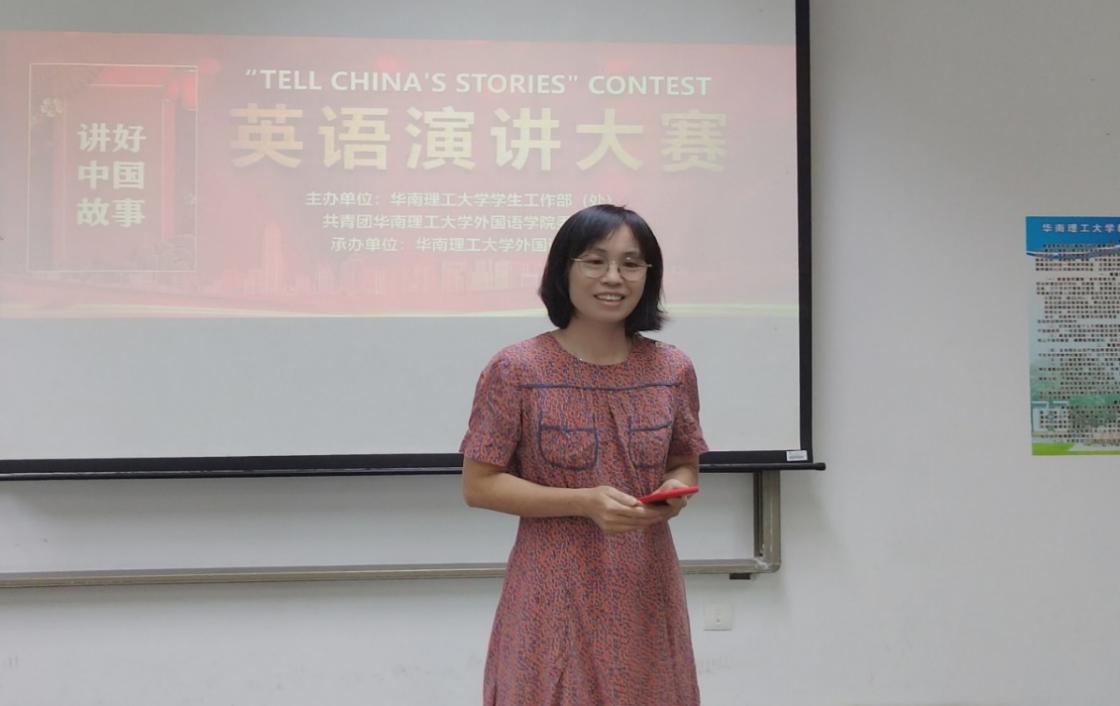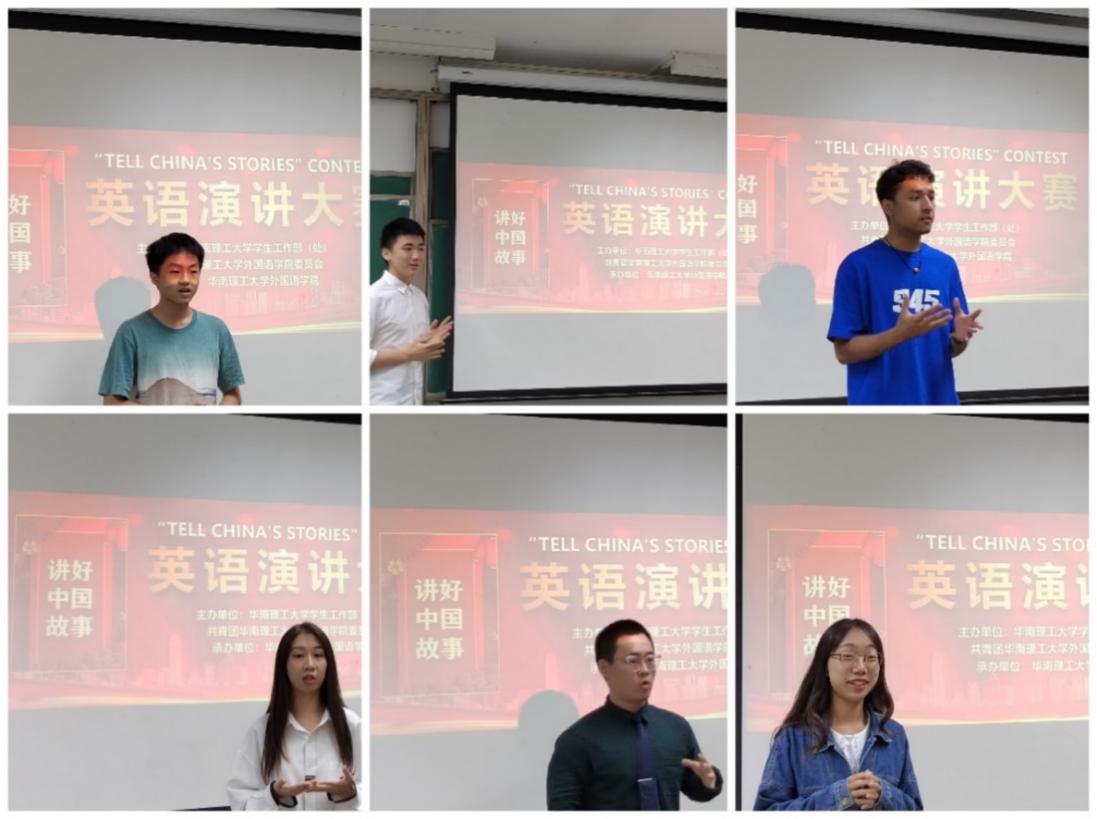General Secretary Xi Jinping has stressed that it is an important task to strengthen China’s capacity for international communication to present China’s stories, spread the voice of China, and show a true, three-dimensional and comprehensive country. In order to further practise the course’s ideological and political thought, implement moral education and cultivate people, and train students to tell China’s stories in English and spread the voice of China, College of Foreign Languages organized the first English Speech Contest “Tell China’s Stories” based on the first-class undergraduate course of Guangdong province Zhuangzi’s Fables and Wisdom. The theme of contest is to inherit excellent traditional culture, actively cultivate and practise core socialist values, thoroughly study and implement the spirit of General Secretary Xi’s important speeches, encourage diversified development, broaden international horizons, spread Chinese culture and present China’s stories.

Pic.1 Theme version of “Tell China’s Stories” Contest
This contest attracted more than 100 students from all majors to participate in the preliminary part. With the topic of the 100th anniversary of the founding of the Communist Party of China (CPC) as the theme, students who participated in the preliminary contest narrated the glorious course and valuable experience of the CPC from various perspectives in English.

Pic.2 Speech manuscripts of “Tell China’s Story” Contest
Pingdi Zhou, the principal of course Zhuangzi’s Fables and Wisdom, hosted the speech contest. Ms. Zhou said passionately in her opening speech that 2021 is an extraordinary year, as the Communist Party of China celebrates its 100th anniversary. History is the best textbook. Standing at the important juncture of the centennial anniversary and facing the complex international situation, young students can only “stay true to their original aspiration and keep their mission firmly in mind, so as to comfort history and ancestors, make good achievements and forge ahead”.

Pic.3 Teacher Pingdi Zhou hosts “Tell China’s Stories” Contest

Pic.4 Participants of “Tell China’s Stories” Contest are making passionate speeches
Shahao Li from College of Molecular Science and Engineering of the International Campus, combined with the concept of “strengthening the confidence of Chinese culture and integrating the elites of global civilization”, shared his own views on how to present China’s stories. Quoting the words of General Secretary Xi Jinping, he explained why we should actively tell China’s stories. He also offered his own insight into how to present the story by means of one city. Combined with the cultural heritage of his hometown Nantong, he felt that museums in the city were a visible manifestation of the city’s culture. Only by making good use of museums as a cultural and educational base, can more people, especially young people, learn about Chinese culture and strengthen their “four self-confidence”.
Ke’er Lin, a student from College of Foreign Languages, shared her views on how to present China’s stories in the Internet era in accordance with the call of the new era of “strengthening confidence in Chinese culture and promoting Chinese culture to go global”. She used Ziqi Li’ video as an example to analyze the traditional cultural features covered, and then summarized reasons for her popularity overseas. Ziqi Li is a successful example of using the Internet to narrate China’s story. Only starting from recording life from now on, can we promote more traditional culture to spread out in a pleasing way, and make Chinese culture go out more steady, stronger, and longer.
“Tell China’s Story” Contest, held by College of Foreign Languages, was another step to carry out the fundamental task, i.e., “implementing moral education and cultivating people”, which helped inspire national emotion and culture mission of contemporary university students, promoting the creative transformation of Chinese excellent traditional culture, innovative development. Moreover, it helped improve students’ English language ability, thinking quality, cross-cultural awareness, and ability of critical thinking, cultivating more interdisciplinary foreign language talents with an international perspective and the ability to conduct cross-cultural communication.

